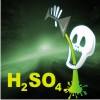-
![[image]](https://www.balancer.ru/cache/sites/i/3/i3.imageban.ru/out/2013/02/16/128x128-crop/994df6a06fefd822747c8b20075e4e81.jpg)
Пожар на корвете проекта 20380 "Сообразительный" 02.09.2012
Теги:
Кто в курсе что с "Сообразительным". По некоторым данным лишился хода после пожара. Вот пока официоз Вести.Ru: Корвет "Сообразительный" покинул зону учений после пожара


Корвет "Сообразительный" остался без хода в западной части Балтийского моря из-за возгорания, возникшего в машинном отделении.
По информации Центрального Военно-Морского Портала личному составу удалось справиться с пожаром, но в результате мероприятий по тушению отдельное оборудование оказалось залитым водой и вышло из строя. Жертв или пострадавших среди личного состава нет.
По предварительной информации вероятными причинами возгорания являются замыкание в электропроводке или неверные действия экипажа. Очаг пожара возник в коридоре газоходов. Личному пожару на ликвидацию возгорания потребовалось больше часа.
Как сообщают vesti.ru, командующий учениями, командир Датской рабочей группы, капитан первого ранга Оге Буур Йенсен, выразил сожаление по поводу того что из-за пожара "Сообразительный" не сможет принять участие в международных военно-морских учениях "Данекс-Ноко-2012", которые должны были начаться в понедельник.
По информации Центрального Военно-Морского Портала личному составу удалось справиться с пожаром, но в результате мероприятий по тушению отдельное оборудование оказалось залитым водой и вышло из строя. Жертв или пострадавших среди личного состава нет.
По предварительной информации вероятными причинами возгорания являются замыкание в электропроводке или неверные действия экипажа. Очаг пожара возник в коридоре газоходов. Личному пожару на ликвидацию возгорания потребовалось больше часа.
Как сообщают vesti.ru, командующий учениями, командир Датской рабочей группы, капитан первого ранга Оге Буур Йенсен, выразил сожаление по поводу того что из-за пожара "Сообразительный" не сможет принять участие в международных военно-морских учениях "Данекс-Ноко-2012", которые должны были начаться в понедельник.


varnak> Очаг пожара возник в коридоре газоходов.
Хорошее место.
Пошкерить ветошь, маклачку всякую...
Покурить опять же на ходу...
Ничего удивительного.
Хорошее место.
Пошкерить ветошь, маклачку всякую...
Покурить опять же на ходу...
Ничего удивительного.


Собственно сабж:
Неужели все на столько серьезно?
Корвет "Сообразительный" остался без хода в западной части Балтийского моря из-за возгорания, возникшего в машинном отделении.
По информации Центрального Военно-Морского Портала, личному составу удалось справиться с пожаром, но в результате мероприятий по тушению отдельное оборудование оказалось залитым водой и вышло из строя. Жертв или пострадавших среди личного состава нет.
По предварительной информации, вероятными причинами возгорания являются замыкание в электропроводке или неверные действия экипажа. Очаг пожара возник в коридоре газоходов.
Неужели все на столько серьезно?
командующий учениями, командир Датской рабочей группы, капитан первого ранга Оге Буур Йенсен, выразил сожаление по поводу того, что из-за пожара "Сообразительный" не сможет принять участие в международных военно-морских учениях "Данекс-Ноко-2012", которые должны были начаться в понедельник, 3 сентября.


Capt(N)>
"Очаг пожара возник в коридоре газоходов"
По таким журналистическим заметкам очень трудно судить что произошло на самом деле. Но, если воспламенились отложения несгоревшего топлива (которые образуются из-за неналаженной подачи воздуха), то это уже большая проблема. Значит пожар не случаен, а есть предпосылки к нему на всех агрегатах. И корабли нельзя выпускать в море пока коломенцы не отработают автоматику.
Хорошо, что без пострадавших!
"Очаг пожара возник в коридоре газоходов"
По таким журналистическим заметкам очень трудно судить что произошло на самом деле. Но, если воспламенились отложения несгоревшего топлива (которые образуются из-за неналаженной подачи воздуха), то это уже большая проблема. Значит пожар не случаен, а есть предпосылки к нему на всех агрегатах. И корабли нельзя выпускать в море пока коломенцы не отработают автоматику.
Хорошо, что без пострадавших!


kluz> Любопытно, что Россия и не числится в участниках учений. Наше участие пока озвучено лишь российскими источниками.
ну почему же , флаг РФ на оф.сайте учений есть
ну почему же , флаг РФ на оф.сайте учений есть


Capt(N)> борются с огнем в том числе и водой, а в погребах боезапаса исключительно водой...
Печально. Я думал это норма на современных боевых кораблях: http://www.gielle.it/.../total_flooding_fire_extinguishing_systems.htm
А субж только построен.
Печально. Я думал это норма на современных боевых кораблях: http://www.gielle.it/.../total_flooding_fire_extinguishing_systems.htm
А субж только построен.


Capt(N)>> борются с огнем в том числе и водой, а в погребах боезапаса исключительно водой...
au> Печально. Я думал это норма на современных боевых кораблях: http://www.gielle.it/.../total_flooding_fire_extinguishing_systems.htm
см. http://www.supsalv.org/pdf/VOL%203.pdf
au> Печально. Я думал это норма на современных боевых кораблях: http://www.gielle.it/.../total_flooding_fire_extinguishing_systems.htm
см. http://www.supsalv.org/pdf/VOL%203.pdf


Capt(N)>> борются с огнем в том числе и водой, а в погребах боезапаса исключительно водой...
Анатолий> а на зарубежных новостроях как ?
да так же сравнительно недавно, в мае 2008 горел USS George Washington,причина - непогашенная сигарета, пострадавших 37 человек, боролись с огнем 12 часов, ущерба на 70 миллионов $.
сравнительно недавно, в мае 2008 горел USS George Washington,причина - непогашенная сигарета, пострадавших 37 человек, боролись с огнем 12 часов, ущерба на 70 миллионов $.
Анатолий> а на зарубежных новостроях как ?
да так же
 сравнительно недавно, в мае 2008 горел USS George Washington,причина - непогашенная сигарета, пострадавших 37 человек, боролись с огнем 12 часов, ущерба на 70 миллионов $.
сравнительно недавно, в мае 2008 горел USS George Washington,причина - непогашенная сигарета, пострадавших 37 человек, боролись с огнем 12 часов, ущерба на 70 миллионов $.


Capt(N)>>> борются с огнем в том числе и водой, а в погребах боезапаса исключительно водой...
au>> Печально. Я думал это норма на современных боевых кораблях: http://www.gielle.it/.../total_flooding_fire_extinguishing_systems.htm
Capt(N)> см. http://www.supsalv.org/pdf/VOL%203.pdf
Хорошая книжка, спасибо Страница 3-8:
Страница 3-8:
- Since the chain reaction takes place throughout the flames, disrupters can be effective even if they do not reach the seat of the fire. Dry chemicals and Halon are the most common disrupters.
- Water is the most common cooling agent. To be most effective, the cooling agent should be applied to the fuel at the point where it is being vaporized, i.e., the seat or base of the fire.
Так что фреон более полезен — он и охлаждает, и подавляет, и вытесняет кислород из очага: Halogenated extinguishing agents, known as Halons, act by disrupting the reaction of fuel and oxygen. The ability to disrupt the reaction rapidly, with little hazardous effect on personnel, make Halons fast, safe, clean agents for most Class A, B or C fires. Halon is particularly suited to electronics or other delicate equipment and cargoes since it does not damage components or leave a residue. Halons are not effective on Class D metals
or materials that generate oxygen.
То есть всё кроме D (пожар металлов — магний, алюминий, титан и т.п.) Не зря нави выбили себе разрешение не отказываться от фреона, когда его запретили. Печально что на субжевом новострое вода..
au>> Печально. Я думал это норма на современных боевых кораблях: http://www.gielle.it/.../total_flooding_fire_extinguishing_systems.htm
Capt(N)> см. http://www.supsalv.org/pdf/VOL%203.pdf
Хорошая книжка, спасибо
 Страница 3-8:
Страница 3-8:- Since the chain reaction takes place throughout the flames, disrupters can be effective even if they do not reach the seat of the fire. Dry chemicals and Halon are the most common disrupters.
- Water is the most common cooling agent. To be most effective, the cooling agent should be applied to the fuel at the point where it is being vaporized, i.e., the seat or base of the fire.
Так что фреон более полезен — он и охлаждает, и подавляет, и вытесняет кислород из очага: Halogenated extinguishing agents, known as Halons, act by disrupting the reaction of fuel and oxygen. The ability to disrupt the reaction rapidly, with little hazardous effect on personnel, make Halons fast, safe, clean agents for most Class A, B or C fires. Halon is particularly suited to electronics or other delicate equipment and cargoes since it does not damage components or leave a residue. Halons are not effective on Class D metals
or materials that generate oxygen.
То есть всё кроме D (пожар металлов — магний, алюминий, титан и т.п.) Не зря нави выбили себе разрешение не отказываться от фреона, когда его запретили. Печально что на субжевом новострое вода..


au> не отказываться от фреона, когда его запретили
Фреоны, которые оказывали воздействие на озоновый слой, постепенно заменили безвредными для него. Существует целое семейство веществ (с разными свойствами), которые обозначаются фреонами и халонами (с соответствующим индексом).
Они эффективны в закрытых, изолированных помещениях. Но, например, при пожаре на верхней палубе при сильном ветре вряд ли помогут. К тому же их количество на борту всегда ограничено. Также вопрос цены играет свою роль.
Фреоны, которые оказывали воздействие на озоновый слой, постепенно заменили безвредными для него. Существует целое семейство веществ (с разными свойствами), которые обозначаются фреонами и халонами (с соответствующим индексом).
Они эффективны в закрытых, изолированных помещениях. Но, например, при пожаре на верхней палубе при сильном ветре вряд ли помогут. К тому же их количество на борту всегда ограничено. Также вопрос цены играет свою роль.


Давным давно...в далекой далекой галактике...судовые роботы-пожарные
Прикреплённые файлы:


tsonyo> например, при пожаре на верхней палубе при сильном ветре вряд ли помогут.
Снаружи как раз водой нет проблем тушить — там и так всё на попадание воды расчитано.
> Также вопрос цены играет свою роль.
Вопрос цены химии? Сколько стоит ремонт горелого корабля представляете? Сколько стоит замена утопленного оборудования представляете? Риторические.
Снаружи как раз водой нет проблем тушить — там и так всё на попадание воды расчитано.
> Также вопрос цены играет свою роль.
Вопрос цены химии? Сколько стоит ремонт горелого корабля представляете? Сколько стоит замена утопленного оборудования представляете? Риторические.


tsonyo>> например, при пожаре на верхней палубе при сильном ветре вряд ли помогут.
au> Снаружи как раз водой нет проблем тушить — там и так всё на попадание воды расчитано.
Снаружи понятие растяжимое. Ключевой момент во всех газовых тушениях это полная герметичность помещения. Для воды это не вопрос. Посему на корабле, где всегда имеются негерметичные помещения, особенно после боевых осколочных повреждений, тушение водой, пмсм, является разумной нормой, как наличие оружия ближнего боя у пехотинцев штурмовой группы.
>> Также вопрос цены играет свою роль.
au> Вопрос цены химии? Сколько стоит ремонт горелого корабля представляете? Сколько стоит замена утопленного оборудования представляете? Риторические.
Судовое оборудование рассчитано на тушение его водой, особенно ценное. Крайне ценное и трудно заменяемое еще и полное затопление может выдерживать в течение какого-то времени. Там где это по условиям конструкции самого оборудования труднореализуемо, там вода является последним средством тушения, а первым всегда газ, дистиллят, пена... Машины все сначала тушат так, чтобы они не пострадали, если не помогло, тогда водой. Что произошло на корвете, лично мне, пока не понятно. Какое ценное оборудование они залили тоже неясно и почему также. Может быть все системы на корабле были, но экипаж предпочел в критической ситуации воду.
au> Снаружи как раз водой нет проблем тушить — там и так всё на попадание воды расчитано.
Снаружи понятие растяжимое. Ключевой момент во всех газовых тушениях это полная герметичность помещения. Для воды это не вопрос. Посему на корабле, где всегда имеются негерметичные помещения, особенно после боевых осколочных повреждений, тушение водой, пмсм, является разумной нормой, как наличие оружия ближнего боя у пехотинцев штурмовой группы.
>> Также вопрос цены играет свою роль.
au> Вопрос цены химии? Сколько стоит ремонт горелого корабля представляете? Сколько стоит замена утопленного оборудования представляете? Риторические.
Судовое оборудование рассчитано на тушение его водой, особенно ценное. Крайне ценное и трудно заменяемое еще и полное затопление может выдерживать в течение какого-то времени. Там где это по условиям конструкции самого оборудования труднореализуемо, там вода является последним средством тушения, а первым всегда газ, дистиллят, пена... Машины все сначала тушат так, чтобы они не пострадали, если не помогло, тогда водой. Что произошло на корвете, лично мне, пока не понятно. Какое ценное оборудование они залили тоже неясно и почему также. Может быть все системы на корабле были, но экипаж предпочел в критической ситуации воду.



kluz> Странно как-то это
Да ничо странного, учитывая фото посудин котрые на ходу коптят как черти...
По ходу дела их кормят либо мазутом либо тяжёлыми дистилятами для гтд(при том что двигло расчитано мксимум на дм, а то и дт), а команды до кучи необучены...
Результат законмерен-в 80-е(когда начался переход на тяжёлые топлива на комеррческих 2т) пожар в котле утилизаторе был нормой.
Да ничо странного, учитывая фото посудин котрые на ходу коптят как черти...
По ходу дела их кормят либо мазутом либо тяжёлыми дистилятами для гтд(при том что двигло расчитано мксимум на дм, а то и дт), а команды до кучи необучены...
Результат законмерен-в 80-е(когда начался переход на тяжёлые топлива на комеррческих 2т) пожар в котле утилизаторе был нормой.


В Балтийск не пришёл. вести пишут, что пожар был то ли у стенки датской базы, то ли на рейде. Там же инфа о том, что корвет отвели в базу для ремонта.


tsonyo> "Очаг пожара возник в коридоре газоходов"
речь идет скорее всего о фальштрубе и помещении под ней, где проходят выхлопные трубы, установлены утиль.котлы, системы вентиляции итд., тушили сверху, вода вниз в МО полилась на все подряд, отсюда и версии о неправильных действиях и последствия от залития
речь идет скорее всего о фальштрубе и помещении под ней, где проходят выхлопные трубы, установлены утиль.котлы, системы вентиляции итд., тушили сверху, вода вниз в МО полилась на все подряд, отсюда и версии о неправильных действиях и последствия от залития


J.F.> Машины все сначала тушат так, чтобы они не пострадали, если не помогло, тогда водой.
Верно, сначала чтобы не пострадали огнетушителями и водой, как первая реакция на воспламенение, а вот если не помогло - тогда уже глобально - CO2 !
J.F.> Какое ценное оборудование они залили тоже неясно и почему также.
на корабле скорее всего вышла из строя ситема управления ДДА, для этого нужно залить щиты управления ДДА или повредить кабеля, других вариантов и нет, однако верна-ли информация, что он лищился хода?
если да, в Дании его не сделают, сам тоже не придет, 921-й СБ пойдет, а если своим ходом придет, то не так все страшно..
Верно, сначала чтобы не пострадали огнетушителями и водой, как первая реакция на воспламенение, а вот если не помогло - тогда уже глобально - CO2 !
J.F.> Какое ценное оборудование они залили тоже неясно и почему также.
на корабле скорее всего вышла из строя ситема управления ДДА, для этого нужно залить щиты управления ДДА или повредить кабеля, других вариантов и нет, однако верна-ли информация, что он лищился хода?
если да, в Дании его не сделают, сам тоже не придет, 921-й СБ пойдет, а если своим ходом придет, то не так все страшно..


информация от источника в ВМФ: пожар в МО на переходе, выход из строя систем от воздейтсвия воды и пены, необходима буксировка на базу
Fire aboard Russian corvette may delay international drill in Baltic Sea - Interfax
// www.interfax.com

Copyright © Balancer 1997..2020
Создано 02.09.2012
Связь с владельцами и администрацией сайта: anonisimov@gmail.com, rwasp1957@yandex.ru и admin@balancer.ru.
Создано 02.09.2012
Связь с владельцами и администрацией сайта: anonisimov@gmail.com, rwasp1957@yandex.ru и admin@balancer.ru.
 varnak
varnak
 инфо
инфо инструменты
инструменты Snake
Snake


 Capt(N)
Capt(N)


 tsonyo
tsonyo





 Dem333
Dem333




 3X
3X

